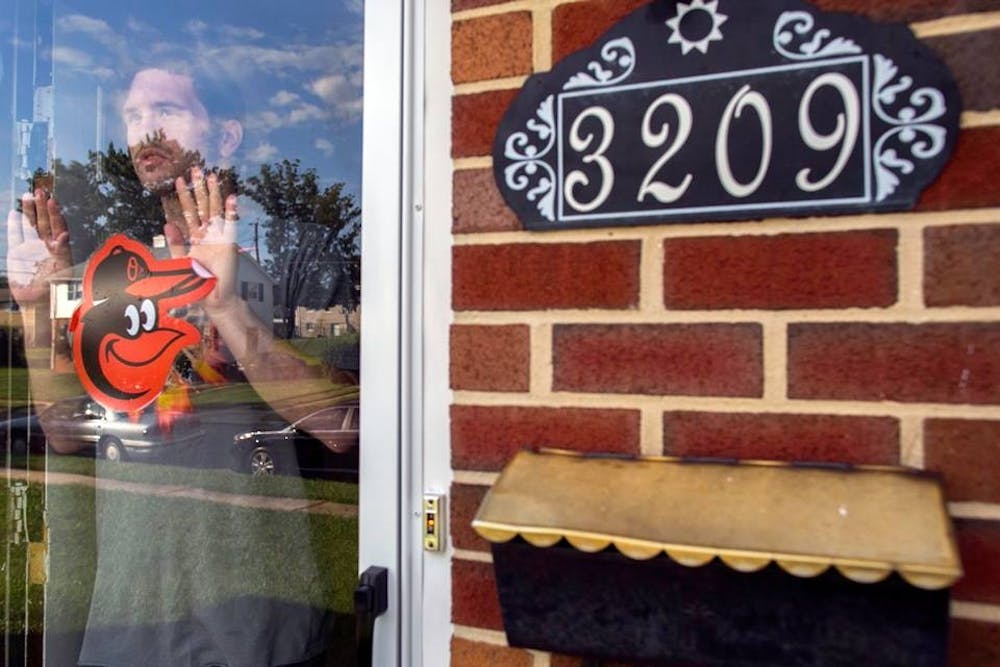After years of telling other people’s stories through a lens, Elon University alumna and documentary filmmaker Heather Cassano ’13 decided it was time to bring her work a little closer to home.
Cassano graduated from Elon in 2013 and is currently a Masters of Fine Arts candidate at Emerson University, where she is working on her latest project about her younger brother with autism, Brian.
She came up with the idea to make a film about her brother after traveling to the Full Frame Documentary Film Festival in Durham with her peers at Elon.
“When I was there I took a master class with Allen Berliner, who’s a documentary filmmaker, and was talking about the value of personal work and how it’s sometimes better or more truthful than things about other people,” Cassano said. “Previously I had been like, ‘If only I could find someone else who had a severely autistic brother and then I could make a documentary about that,’ and then while I was sitting in that workshop I was like, ‘What is wrong with me? I should make it about my brother.’”
She started filming last summer at Brian’s high school graduation, using a cinema verite documentary style, a type of filming pioneered in the 1970s that is a more observational style of documentary filmmaking.
“It’s supposed to be like, you sit and watch things unfold and you don’t ask questions and don’t interrupt, and it’s just letting the reality of life play out for the camera,” Cassano said. “In my opinion, it’s a more honest form of documentary filmmaking.”
She now has more than 100 hours of footage that she is sorting through to create a story.
“The scenes are editing themselves for me,” Cassano said. “The overall arc of the film still remains to be seen, because right now I have scenes that are perfect but I’m like, ‘How do they all fit together?’”
Brian — also the working title for the documentary — is nonverbal, meaning he can neither hold conversations nor really understand the ramifications of the film. Cassano is very much attuned to her brother’s queries if something is bothering him and says it hasn’t seemed to so far.
This coming summer, when Cassano begins to film again, she will focus her approach more so than the first time around.
“I’m trying to delve more into Brian’s personality,” she said. “Brian’s autism is such that it is difficult to understand what he wants and what he is needing out of life, and I think that is something that is ignored in people with severe disabilities like this. It’s just like, ‘Let’s take care of [him] and make sure he’s fed and clothed and that’s it.’ But I want something for him, and I’m sure that he wants more than that.”
So far, Cassano has done most of the work by herself, but has sought some help with editing and cinematography. Alumnus Al Drago ’15 has also been contributing to the film as a second shooter and still photographer.
Cassano has started a Kickstarter page to help fund the expenses of creating a documentary. She quickly reached her goal of $10,000 and was pleasantly surprised with the overwhelming support. With more than $12,000 donated to the campaign as of now, she has extended the stretch goal to $15,000. The extra money will help fulfill Cassano’s hopes of setting up as many public screenings as possible to ensure many people can see this movie.
There is still about a year of work to do, but once the film is completed she hopes to have a good run in various film festivals.
“I’ve already seen benefits from the film from my perspective for both Heather and Brian in terms of how much closer they’ve become,” said Melinda Elliot, Brian and Heather’s mother. “What I hope to come from it, and the reason I am so supportive in addition to the fact that it involves my only children is that this needs to change.”
Cassano’s main goal for the film is awareness.
“There are so many people who are now aging out of the school system and the support structure is just not there,” she said. “So by bringing Brian’s story and personality to the screen I am hoping to change that.”
Cassano’s goal for the film is to bring more awareness to the public about adults with autism and the lack of support available for adults after they leave the system.
In Maryland, where Cassano’s family lives, people age out of the school system at age 21, meaning they can no longer attend high school. This often presents a very difficult transition for young people with disabilities.
“There are so many people who are now aging out of the school system and the support structure is just not there,” she said. “So by bringing Brian’s story and personality to the screen, I am hoping to change that.”


